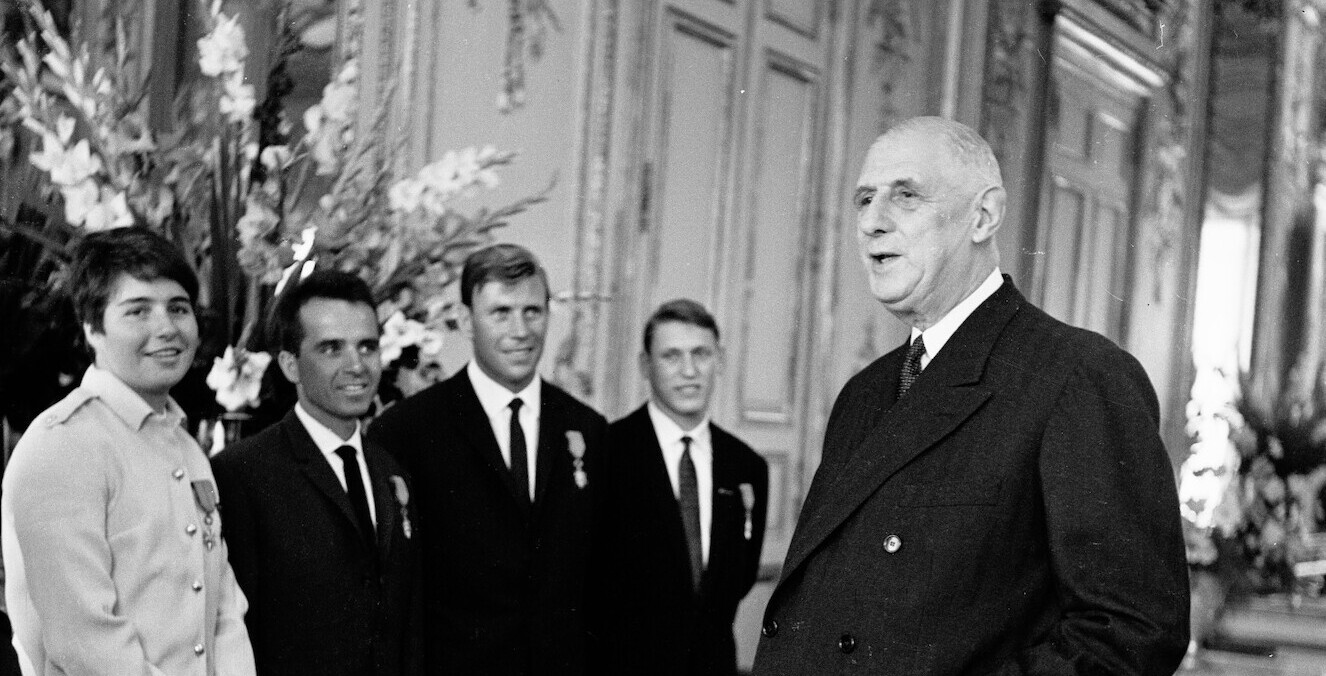


When Donald Trump returned to the presidency in January 2025, one of the first things he did was to prominently display the bust of Winston Churchill in the Oval Office once again. Four years before, President Biden had replaced Churchill’s bust with that of Robert F. Kennedy. President Trump, like most Americans of a certain age, reveres Churchill for his role in saving Western civilization during the early years of the Second World War. Trump, however, should add to the Oval Office another bust of a World War II giant — Charles de Gaulle. Trump, in some respects, is the American De Gaulle.
Physically, De Gaulle was an imposing, dominating presence in any setting. Trump is equally imposing and dominating in any setting. De Gaulle exuded confidence, and at times approached arrogance. Trump does, too. Trump, however, appears more approachable than De Gaulle ever was. De Gaulle had an air of superiority, while Trump is more at ease with the common man.
Trump, of course, does not share De Gaulle’s military achievements, but Trump’s attitude about America resembles De Gaulle’s devotion to France. In the first paragraph of De Gaulle’s war memoirs, he wrote that his appreciation of France was “inspired by sentiment as much as reason.”
“France,” De Gaulle continued, “is not really herself unless in the front rank…. France cannot be France without greatness.” De Gaulle expressed shame that the leaders of his country surrendered so quickly to Germany in World War II, and explained that when a nation is faced with great peril, “the only salvation lies in greatness.” (RELATED: ‘That De Gaulle, He Is Somebody’)
President Trump thinks about America that way. He campaigned on a pledge to “make America great again” — a phrase he repeats as often as De Gaulle paired France and greatness in his writings and speeches. De Gaulle wrote that after the disaster of the surrender to Hitler, it was for him “to assume the burden of France.” Trump has repeatedly said that he ran for reelection in 2024 to “save” America. Like De Gaulle, Trump has assumed the burden of saving America from the disastrous policies of his predecessor.
De Gaulle, both during the war and when he was President of France, infuriated France’s allies by insisting on pursuing policies in France’s national interest. During the war, he insisted that France (the Free French movement he headed) be accorded an equal voice in Allied strategy despite its much smaller contribution to the war effort.
As President of France, he withdrew France’s Atlantic and Channel fleets from NATO command in 1963, and four years later, he pulled French forces out of NATO’s military structure. He denounced U.S. policies in Vietnam. He also developed an independent nuclear deterrent force and conducted an independent foreign policy based on French interests. “The defense of France,” he said, “must be in French hands,” and “France should defend herself by herself, for herself and in her own way.” In Trump language, this is “France First.”
Trump, too, infuriates America’s allies when he insists they take greater responsibility for their own defense, imposes tariffs on them to level the trade playing field, and promotes America’s interests first, last, and always.
De Gaulle, like Trump, was faced with “endless wars” — in Trump’s case in Afghanistan, and in De Gaulle’s case in Algeria. Both leaders viewed the conflicts and their country’s involvement in the conflicts as peripheral to more important national security matters.
And I am quite certain that Trump would agree that De Gaulle’s memorable description of the French nation mirrors his own view of the American nation:
She is a living entity. She responds to the call of the centuries. Yet she remains herself through time. Her boundaries may alter, but not the contours, the climate, the rivers and seas that are her eternal imprint. Her land is inhabited by people who, in the course of history, have undergone the most diverse experiences, but whom destiny and circumstance, exploited by politics, have unceasingly moulded into a single nation. This nation has embraced countless generations. … [It] comprises a past, a present and a future that are indissoluble. … [T]he legitimacy of a governing power derives from its conviction, and the conviction it inspires, that it embodies national unity and continuity when the country is in danger.
READ MORE from Francis P. Sempa:
Canada Did Not Make America Great
Reflections on Our Defeat in Vietnam: Lippmann, Burnham, and Nixon
